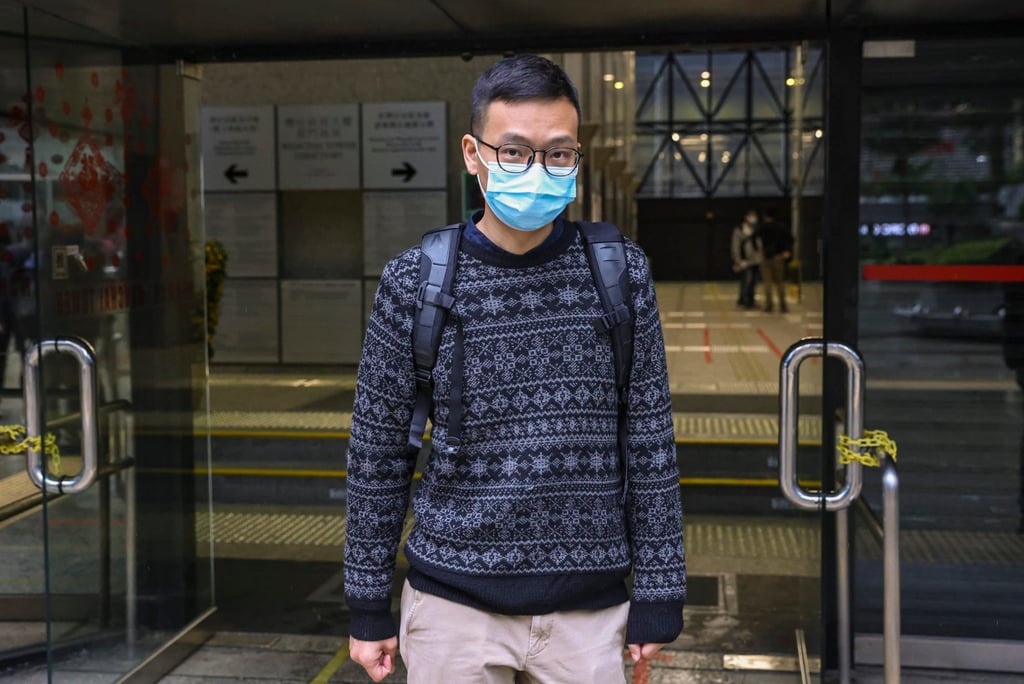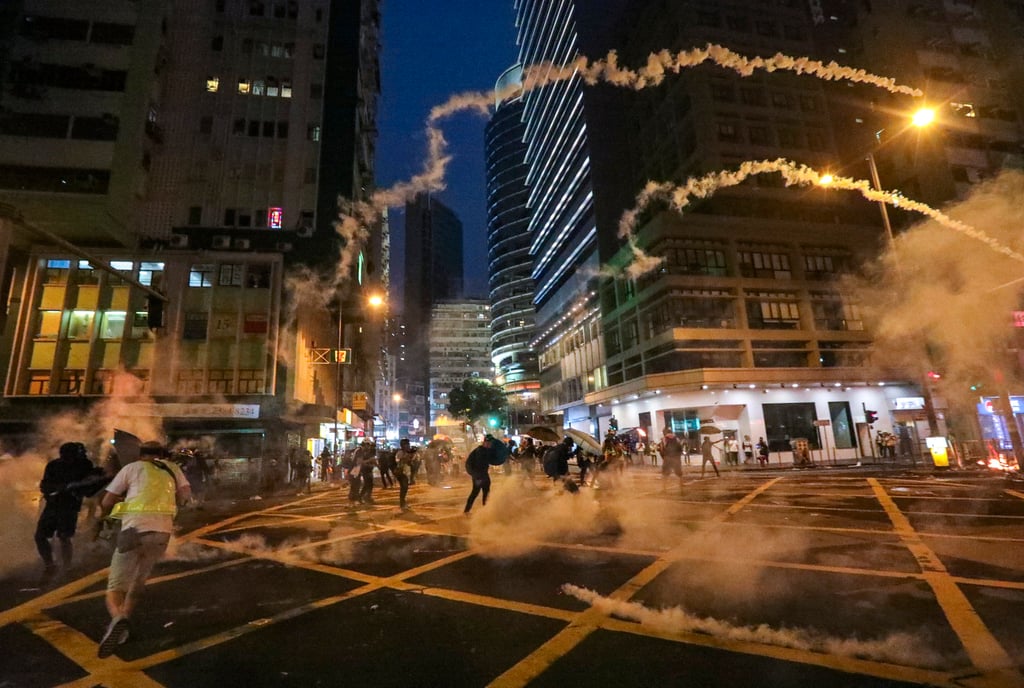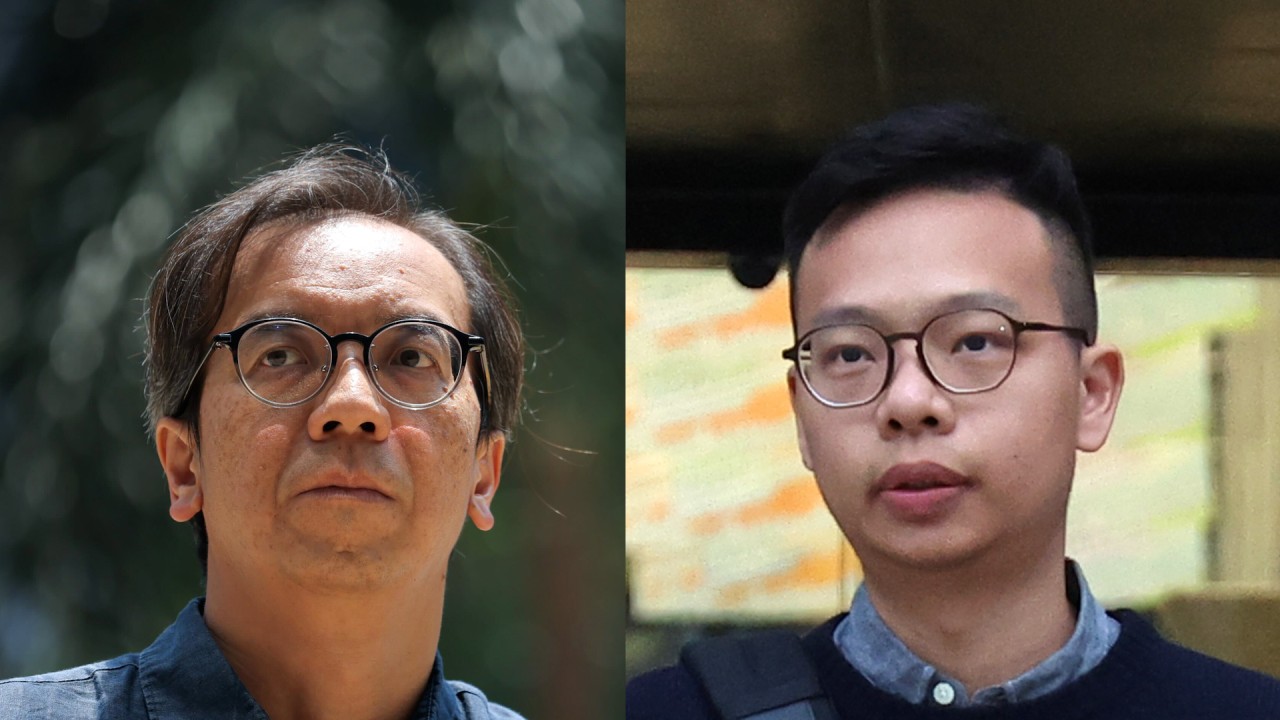How did Hong Kong judge decide Stand News was localist outlet used to smear Beijing?
Former editor-in-chief Chung Pui-kuen, ex-acting editor-in-chief Patrick Lam Shiu-tung and Best Pencil HK, Stand News’ holding company, were found guilty of a joint conspiracy charge of publishing and reproducing seditious material, the first such conviction involving media professionals since the city’s return to Chinese rule in 1997.
The editors face being sent back to jail after spending up to 11 months being incarcerated pending the trial, and the company, which was unrepresented in the proceedings, may have its assets seized.
Judge Kwok Wai-kin, one of the few court officials selected by the chief executive to oversee cases under the security law, ruled people could be held liable for sedition if they intended to incite others or were being reckless about the consequences of their actions.
He highlighted the need to consider “surrounding circumstances” and whether the offence was committed at a time when “a spark will explode a powder magazine”, a phrase borrowed from a 1909 British judgment.
The judge said the press should act in good faith and provide “reliable and precise” information with “accurate factual basis” in accordance with the profession’s ethical standards.
The “marketplace of ideas”, a metaphor used to describe the ideal situation where truth will emerge from a competition of views, could also be distorted when content contained propaganda, disinformation or misinformation, he said.
The judge dedicated 66 paragraphs across 20 pages to his analysis of the city’s political situation in 2019 and 2020.
Kwok cited a public opinion survey in early June 2019 that said as much as two-thirds of the city’s 7.5-million strong population were sceptical of the government before large-scale protests linked to a now-withdrawn extradition bill.

He also made extensive references to two surveys by the Chinese University of Hong Kong, including one released in May 2020 in relation to the protests, and said the anti-government movement had bolstered support for localism and radical ideologies, with many residents “hiding their true political affiliations”.
“Everything was stance-first, objective-oriented and without regard to the proper means,” he wrote. “I am certain the age of populism had descended on Hong Kong by that time.”
The judgment said those who took part in the movement would not come to terms with the political situation just because the security law had been enacted.
Instead, they remained susceptible to incitement on topics relating to Beijing, the city administration and its police.
The judge also pointed to the entrenched antagonism towards Beijing among most of the general public then and said they would “by nature” easily believe in any negative information and criticisms against the central government.
He said it was against this backdrop that Stand News, a go-to source for those aligned with its opposition ideologies, enjoyed “extremely substantial” influence over its viewers until its closure in late December of 2021.
The 11 seditious articles, which were among 17 submitted by prosecutors, were published amid the heated political environment at the time and posed risks to national security and public order, Kwok said.
He added the reports in general had brought authorities into hatred and contempt without providing an objective foundation to support their criticisms.
Veteran journalist Allan Au Ka-lun, the author of four offensive commentaries, was noted for his “extremely negative” depictions of Beijing, unwarranted attacks on the security law and the criminal justice system, as well as his “provocation” of independence sentiments with an overemphasis on Hong Kong’s high degree of autonomy under the “one country, two systems” governing principle.
“Au Ka-lun completely disregarded the fact that [associate publisher] Chan Pui-man and other management members of Apple [Daily] were arrested not because of their identity as media workers, but because of suspicion they committed a national security offence,” Kwok said.
Similar criticisms were made of three pieces by fugitive former lawmaker Nathan Law Kwun-chung, who the judge said had spread fear about the security law and had falsely claimed that protesters were “unreasonably suppressed, made to disappear, assaulted and sentenced to long-term imprisonment”.
“His objective was to spread hatred and anti-government sentiment with disinformation and galvanise the protesters in Hong Kong into devoting themselves in a drawn-out resistance campaign,” Kwok wrote.
The judge said a feature story on journalist turned activist Gwyneth Ho Kwai-lam, who called for continued resistance and “mutual destruction” with the Chinese Communist Party, was capable of fostering hatred and contempt in light of her “absolute resistance” against the central government and “extreme hatred” towards authorities.
The judgment said the biased account was based on false premises provided by two anonymous graduates of the university, who incorrectly claimed that police had stormed the campus and who offered no evidence that academic freedom had been infringed upon.
But Kwok found insufficient evidence that six other articles submitted by prosecutors had crossed legal boundaries.
He gave the example of an interview with localist activist Owen Chow Ka-shing, which focused on his disapproval of traditional opposition parties rather than the government.
Another interview with former district councillor Fergus Leung Fong-wai was deemed harmless due to a lack of explicit criticism towards authorities.
Interviews with fugitive politicians Law, Ted Hui Chi-fung and Sixtus Baggio Leung Chung-hang either highlighted their plans for the future or their hopes for Hong Kong without calling for readers to take specific actions, the judge said.
A sixth article which cited opposition activist Chow Hang-tung as saying Beijing suppressed democratic societies and damaged the rule of law was considered to be a legitimate news report.

Meanwhile, the judge devoted nearly 30 pages to explain what he found to be the criminal mind of the defendants at the time of the 11 articles’ publication between July 2020 and December 2021.
Kwok found Stand News’ inauguration statement, which said it “firmly believes our city’s future should be in Hongkongers’ hands”, represented its true manifesto of self-determination.
He further held that Stand News co-founder Tony Tsoi Tung-hoo and former chief editor Chung had managed the outlet to further the cause of Hong Kong-centric localism for the interests of its financiers, whose identities were deliberately concealed to avoid detection.
The judge cited three editorials, including ones justifying the outlet’s criticisms of police and expressing fears over the security law, and said their claims about tyranny lacked evidence.
He decided Chung or Stand News shared the unfounded belief that so-called police brutality was the result of the government’s indifference to the situation and the absence of a democratic system.
The judgment added that Lam, who was Chung’s successor, supported the 2019 protests based on his remarks made during an online media summit in December that year.
“I find that Stand News’ political ideology was localism. Its position was to support and facilitate Hong Kong’s self-determination, and it became a tool for smearing and vilifying the central and SAR government during the anti-extradition bill movement,” the judge concluded.
